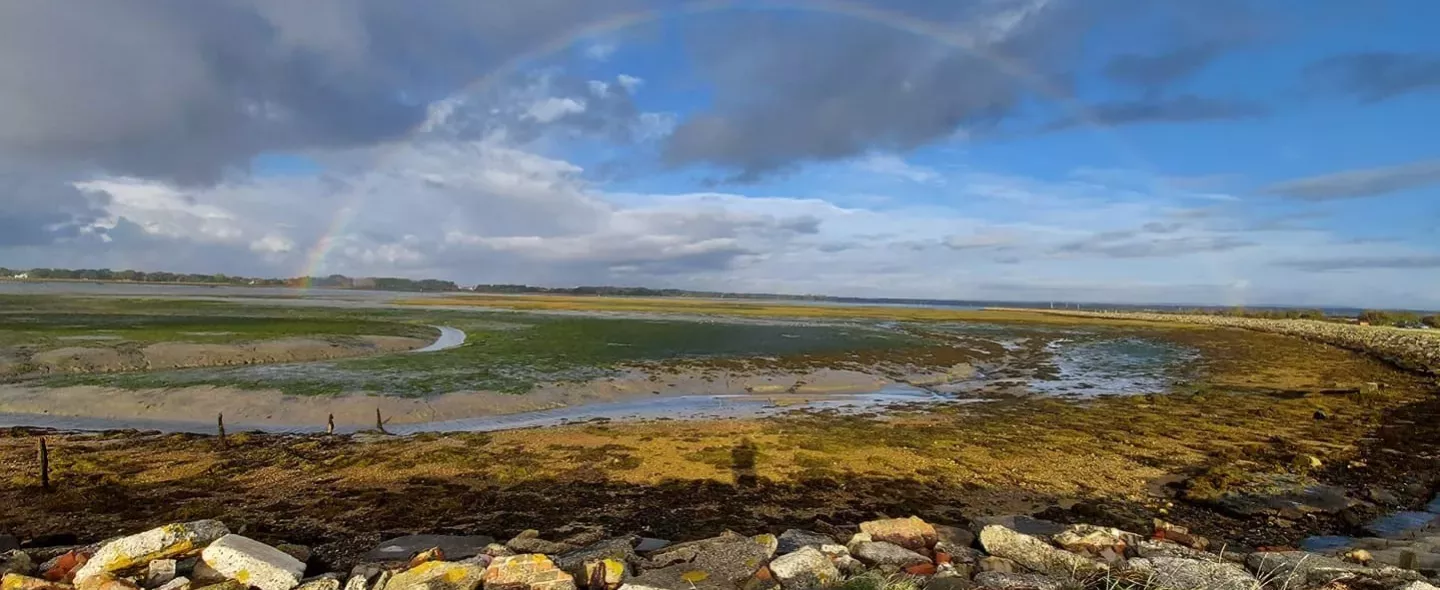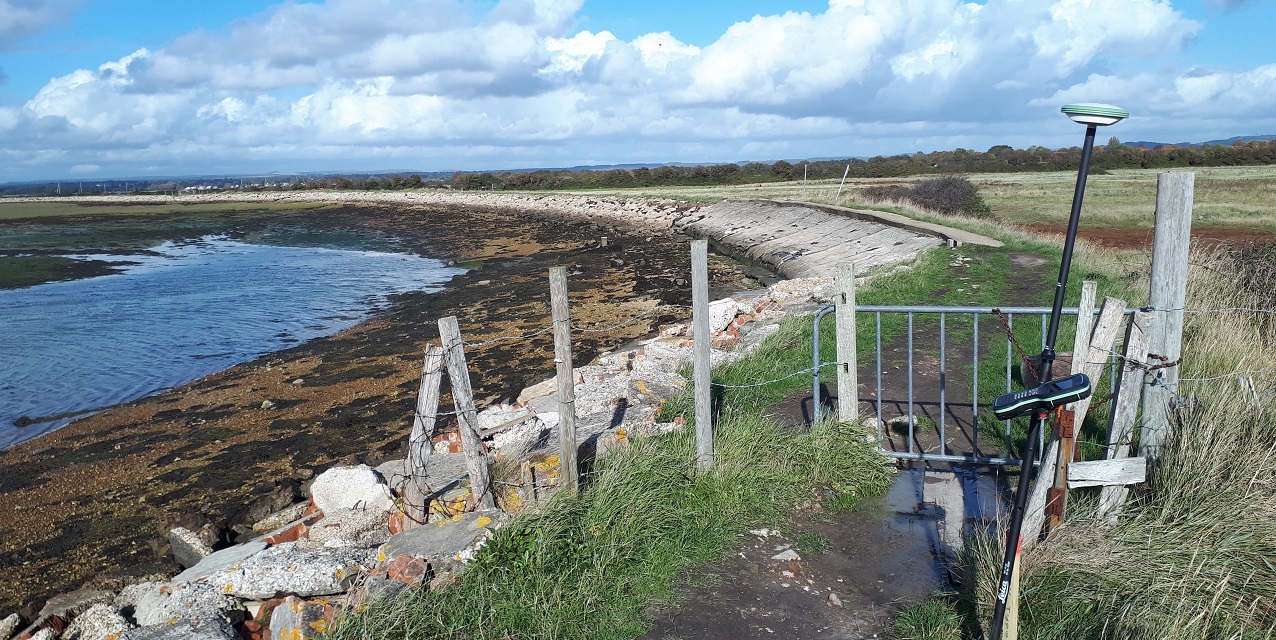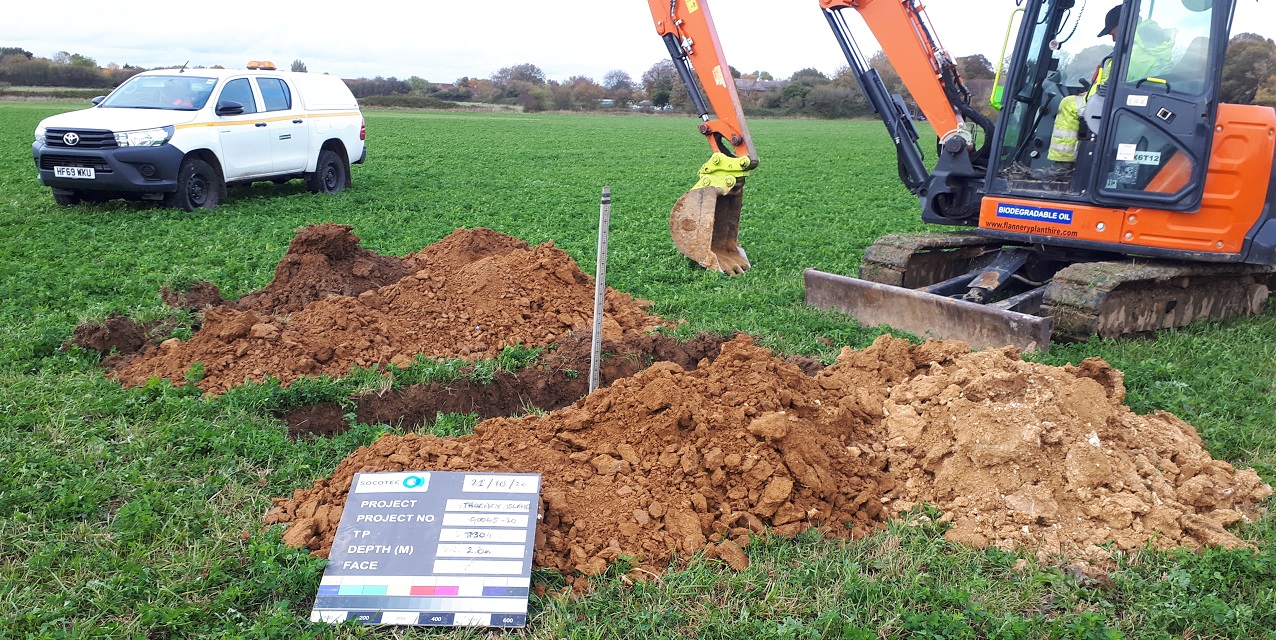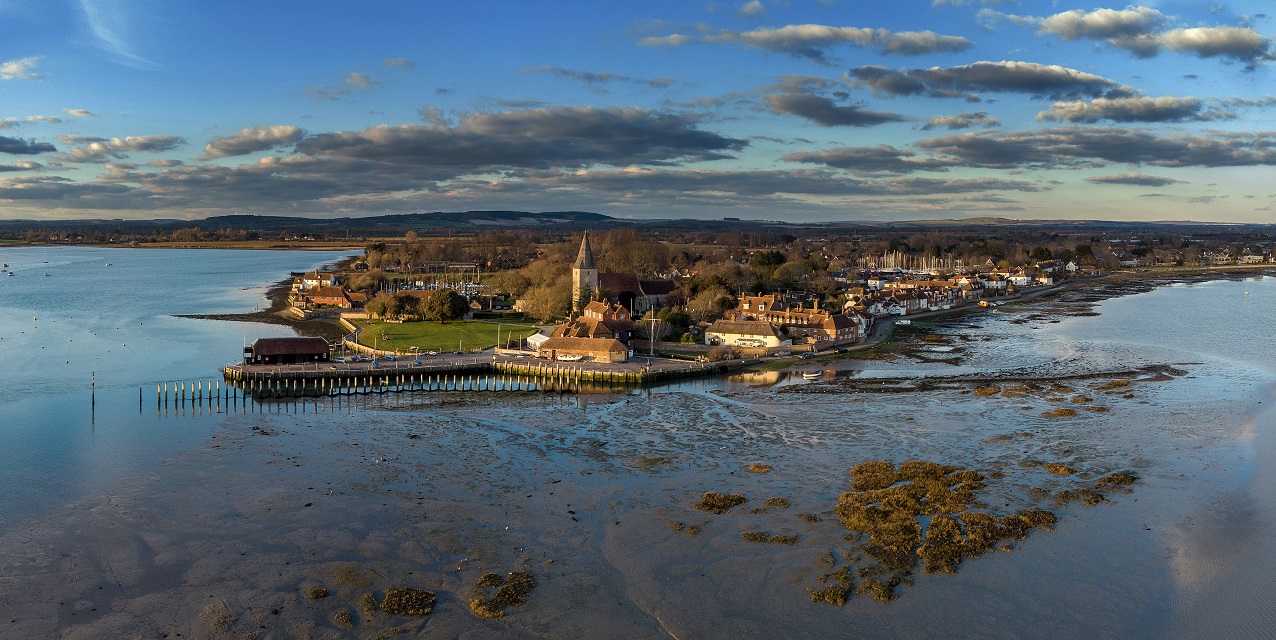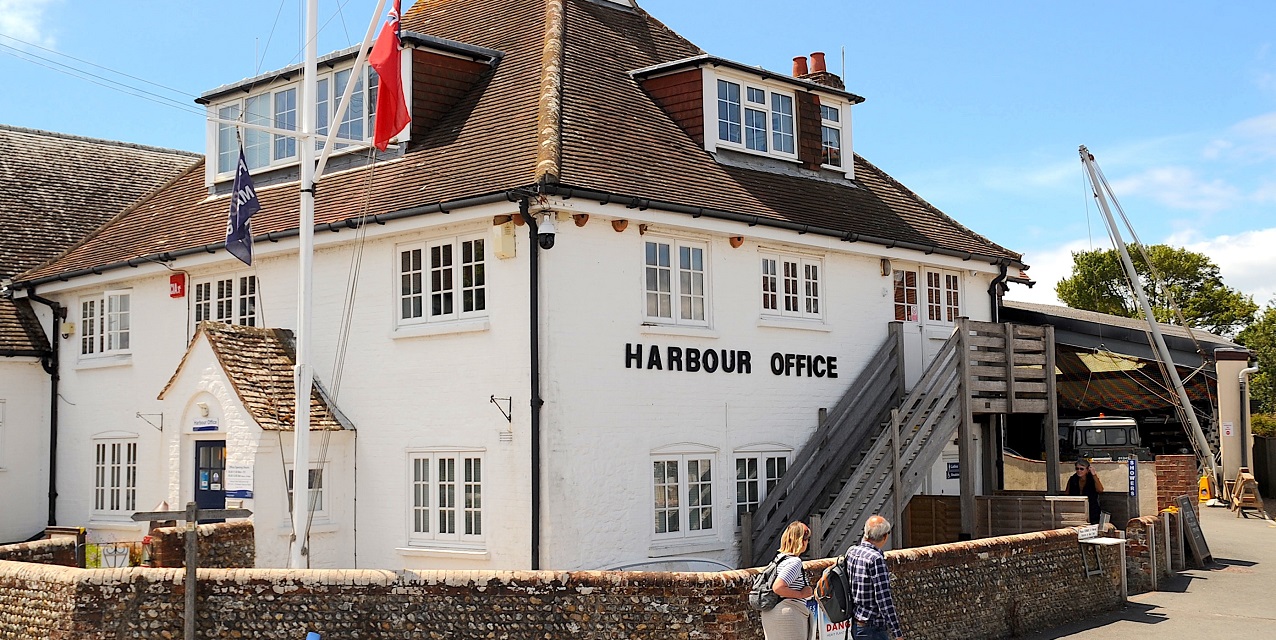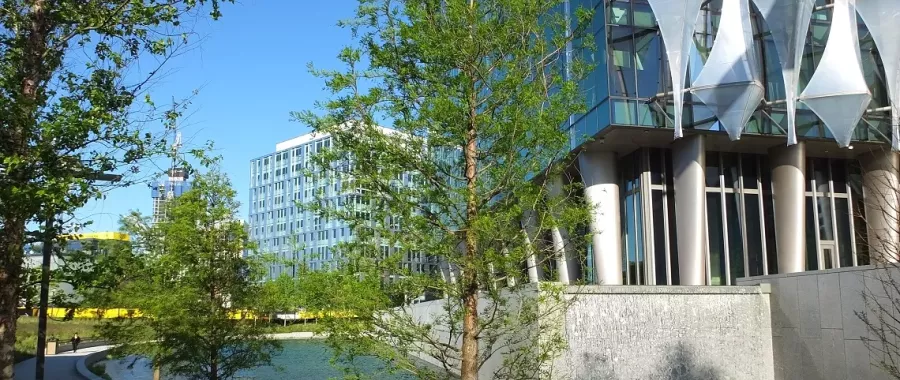Summary of Works
Project name: Thorney Island Habitat Creation Scheme
Client: VolkerStevin
Date: November 2020
Location: West Sussex, United Kingdom

Case Study
Project details
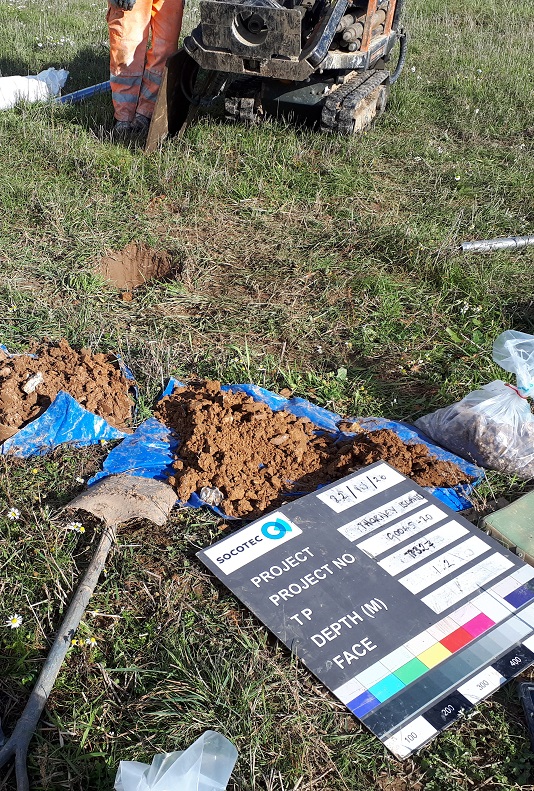
In November 2020, SOCOTEC’s Ground Investigation team carried out investigatory works as part of a proposal for a new line of sea defence in Thorney Island, planned by the Environment Agency. The island is a small peninsula lying adjacent to Chichester Harbour in West Sussex. SOCOTEC’s role in the project was to provide environmental and geotechnical information that would aid and inform the planned construction of the new defence which, once complete, would be set back from the existing coastal defence embankment to create a wetland area linking directly to the harbour.
In November 2020, SOCOTEC’s Ground Investigation team carried out investigatory works as part of a proposal for a new line of sea defence in Thorney Island, planned by the Environment Agency. The island is a small peninsula lying adjacent to Chichester Harbour in West Sussex. SOCOTEC’s role in the project was to provide environmental and geotechnical information that would aid and inform the planned construction of the new defence which, once complete, would be set back from the existing coastal defence embankment to create a wetland area linking directly to the harbour.
Environmental considerations
Prior to the project taking place, considerations had to be given as to how the investigatory works could be undertaken without causing damage to the surrounding environment and community. This was predominantly due to the fact that Chichester Harbour is a Site of Special Scientific Interest (SSSI), a Special Area of Conservation (SAC) and a Ramsar site (an area of international importance for the conservation and sustainable use of wetlands under the Ramsar Convention). Thorney Island is currently owned and used by the Ministry of Defence, which meant taking into account such factors as high levels of security, the potential of unexploded objects, as well as a constant staff presence due to frequent training exercises. Furthermore, due to resident ground nesting birds habiting the island, the project was subjected to time constraints so as not to disrupt their ecological surroundings.
SOCOTEC carried out the site investigatory works over 180 hectares of land to identify historic soil contamination, the vast majority of which was predominantly agricultural. Boreholes had to be accessed over a wide area of land, including over wetlands areas and along existing coastal defence management systems, making sure not to disturb or cause damage to crops and grazing land. Given the nature and history of the site, various specialists therefore had to be called in alongside SOCOTEC to oversee that the project was carried out safely, including the Ministry of Defence, archaeologists, investigation supervisors and unexploded ordnance specialists.
Scope of works
SOCOTEC carried out a range of site investigatory techniques as part of the Thorney Island Habitat Creation Scheme, which comprised a six-week programme of service searches and unexploded ordnance surveys. Examples of investigatory techniques that were implemented include:
- 15.no cable percussion boreholes to 15m
- 18.no window sample boreholes to 6m
- 47.no window sample boreholes to 2m
- 8.no machine excavated trial pits to 2m
- 70.no hand excavated pits, generally to 0.6m.

Case Study
Collaborative effort
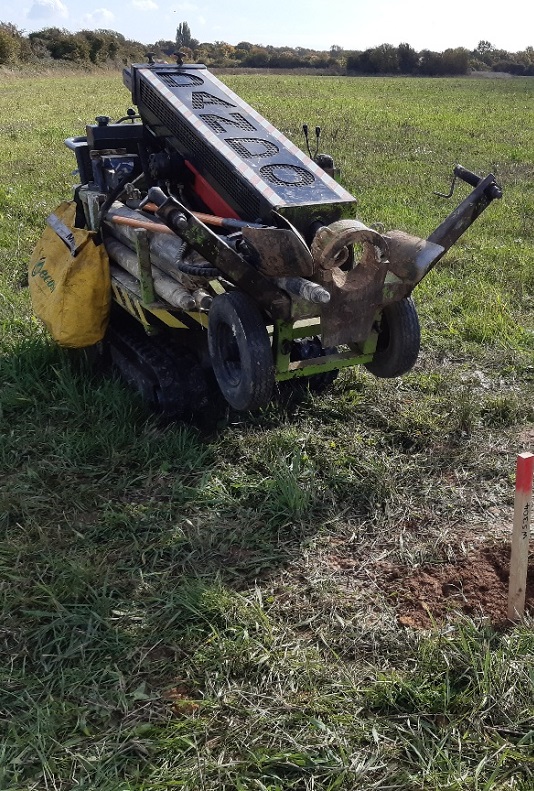
SOCOTEC’s successful delivery of geotechnical and environmental information in such a short timeframe can largely be placed down to the frequent communication maintained between the Ground Investigation team, as well as their development of a professional rapport with the various stakeholders involved in the project. In particular, investigation supervisors maintained a constant site presence, allowing for a rapid turnaround of laboratory testing schedules. Exploratory hole logs from the previous day’s investigation were generally correlated by the SOCOTEC site agent by 10am each day, while a completed testing schedule was returned to SOCOTEC by noon. This method of working meant that only the samples that were to be tested were sent on to the laboratories, saving costs and reducing the carbon footprint of the project.
SOCOTEC’s successful delivery of geotechnical and environmental information in such a short timeframe can largely be placed down to the frequent communication maintained between the Ground Investigation team, as well as their development of a professional rapport with the various stakeholders involved in the project. In particular, investigation supervisors maintained a constant site presence, allowing for a rapid turnaround of laboratory testing schedules. Exploratory hole logs from the previous day’s investigation were generally correlated by the SOCOTEC site agent by 10am each day, while a completed testing schedule was returned to SOCOTEC by noon. This method of working meant that only the samples that were to be tested were sent on to the laboratories, saving costs and reducing the carbon footprint of the project.
The client was extremely pleased with SOCOTEC’s ability to deliver a tight programme of works ahead of the agreed deadline, particularly given the number of external constraints that arose and had to be adapted to over the course of the project. On top of this, the ongoing COVID-19 pandemic meant that socially distanced, COVID-secure methods of working had to be implemented, which was made all the more challenging due to the often unforgiving weather conditions while working on site. Despite this, the Ground Investigation team was able to complete all of the site investigatory works in just three weeks, with site and office staff from SOCOTEC’s Maidstone site working closely together to ensure that all of the results from the analyses were finalised prior to the final deadline.
Reaping the rewards
Upon completion of all laboratory testing and groundwater monitoring services, SOCOTEC was asked to return to Thorney Island to undertake the decommissioning of the boreholes, ensuring that this was carried out in line with the criteria met by the investigation supervisors and the Environment Agency. In addition, SOCOTEC was delighted to discover that the clients’ project manager, Sean Deal, received an ‘Excellent Behaviour Award’ from his senior management team in recognition of the hard work, collaboration and stakeholder communication among all those involved in the Thorney Island Habitat Creation Team.
“The ground investigation works that SOCOTEC recently completed on Thorney Island serve as a prime example of our commitment to delivering a high quality service for our clients, going above and beyond where required in order to meet the demands of the project,” reflected Dan Coen, managing director, Infrastructure, SOCOTEC. “Despite the various challenges that arose, SOCOTEC’s Ground Investigation team worked relentlessly to ensure that the works were completed on time, all while ensuring full compliance with COVID-19 guidelines and minimising damage to the surrounding environment and community on site.”

